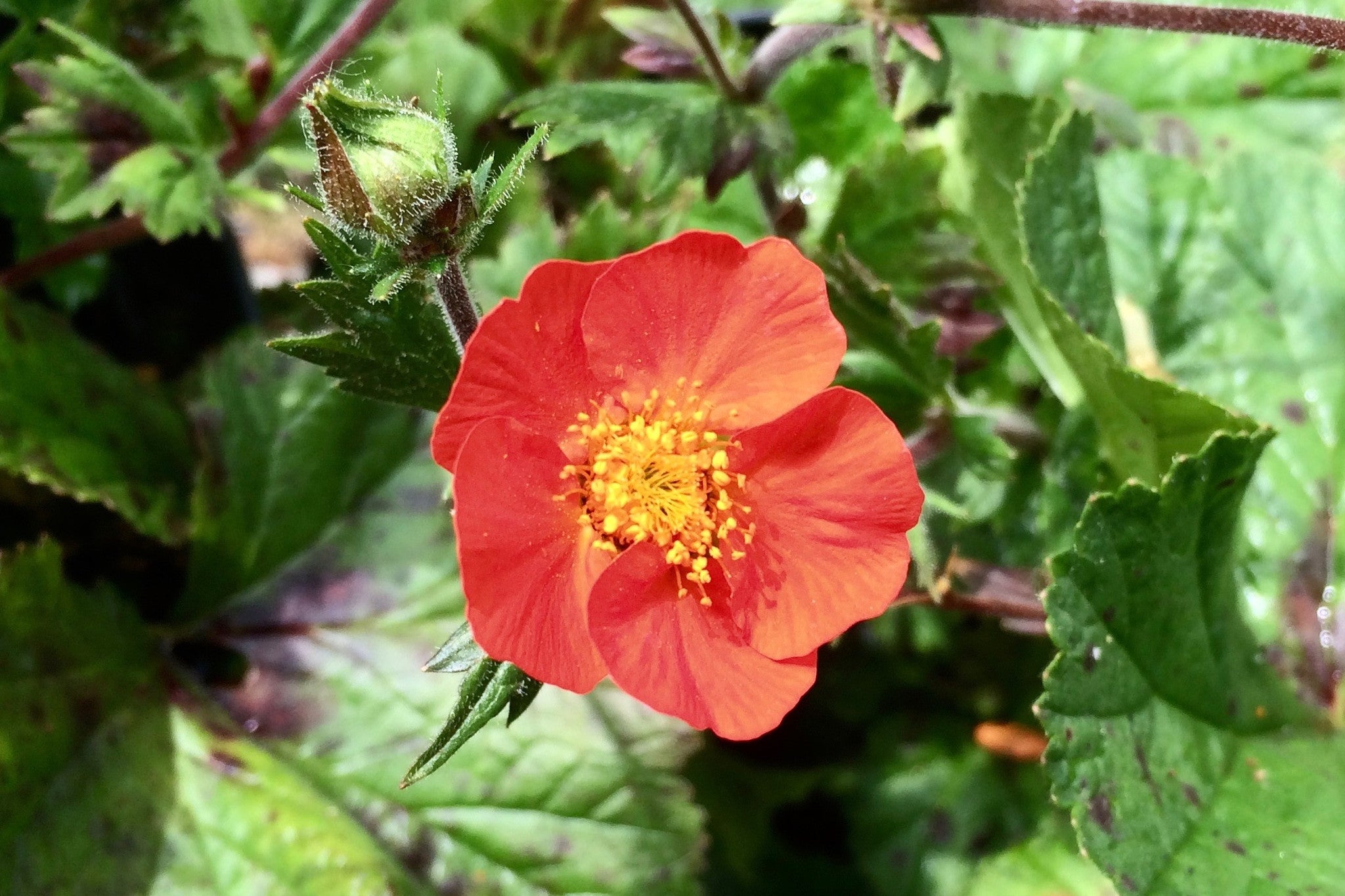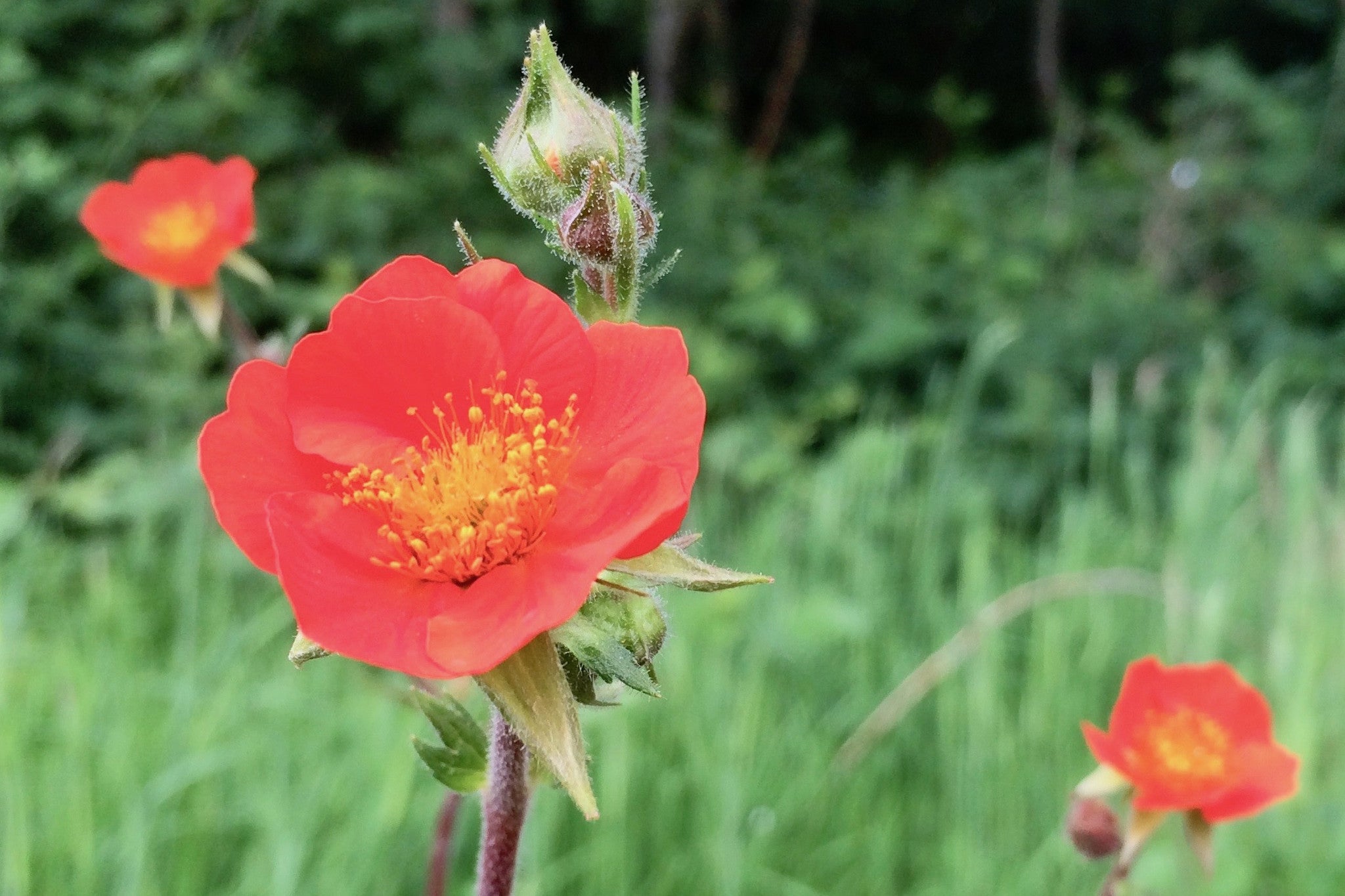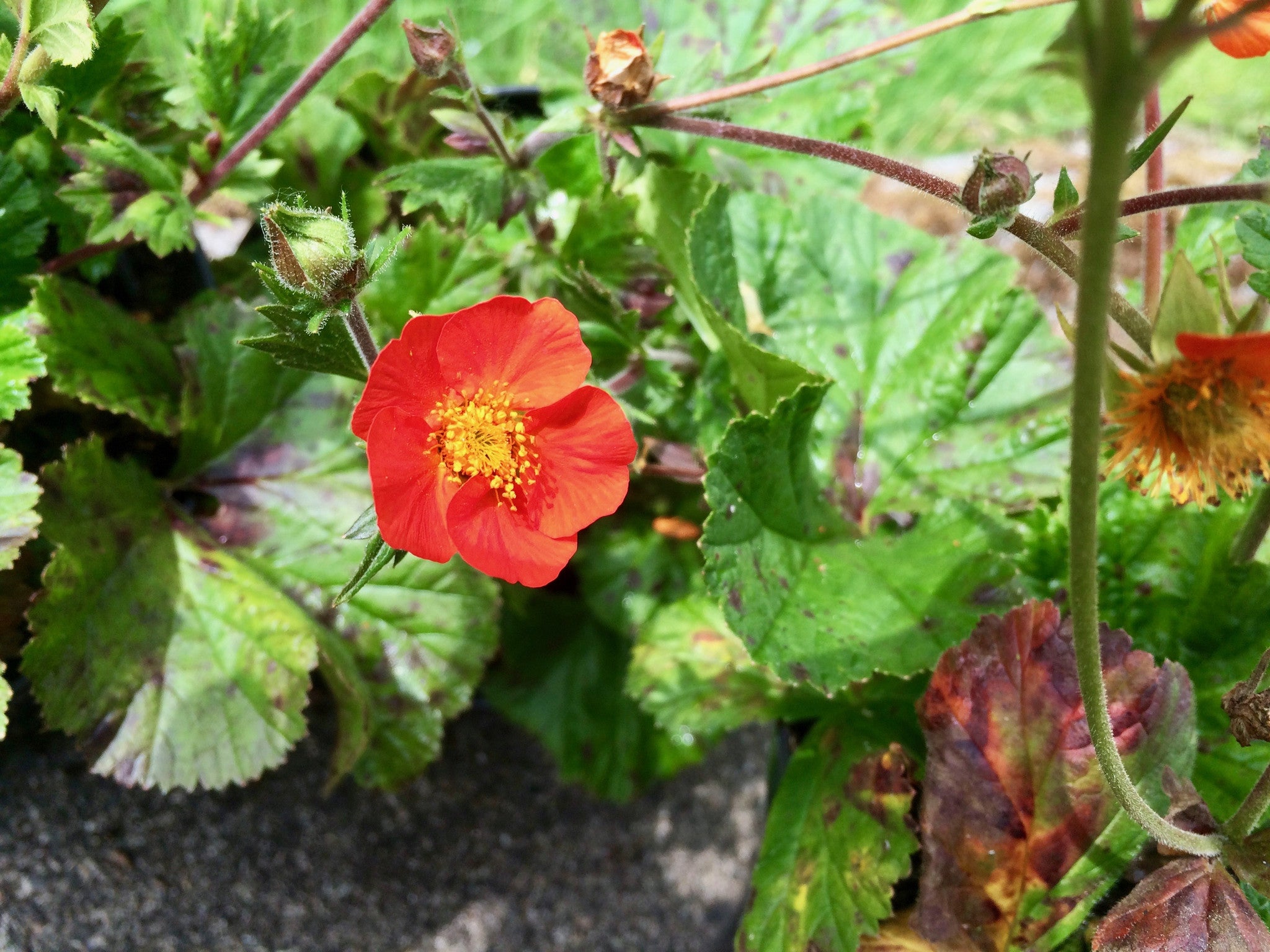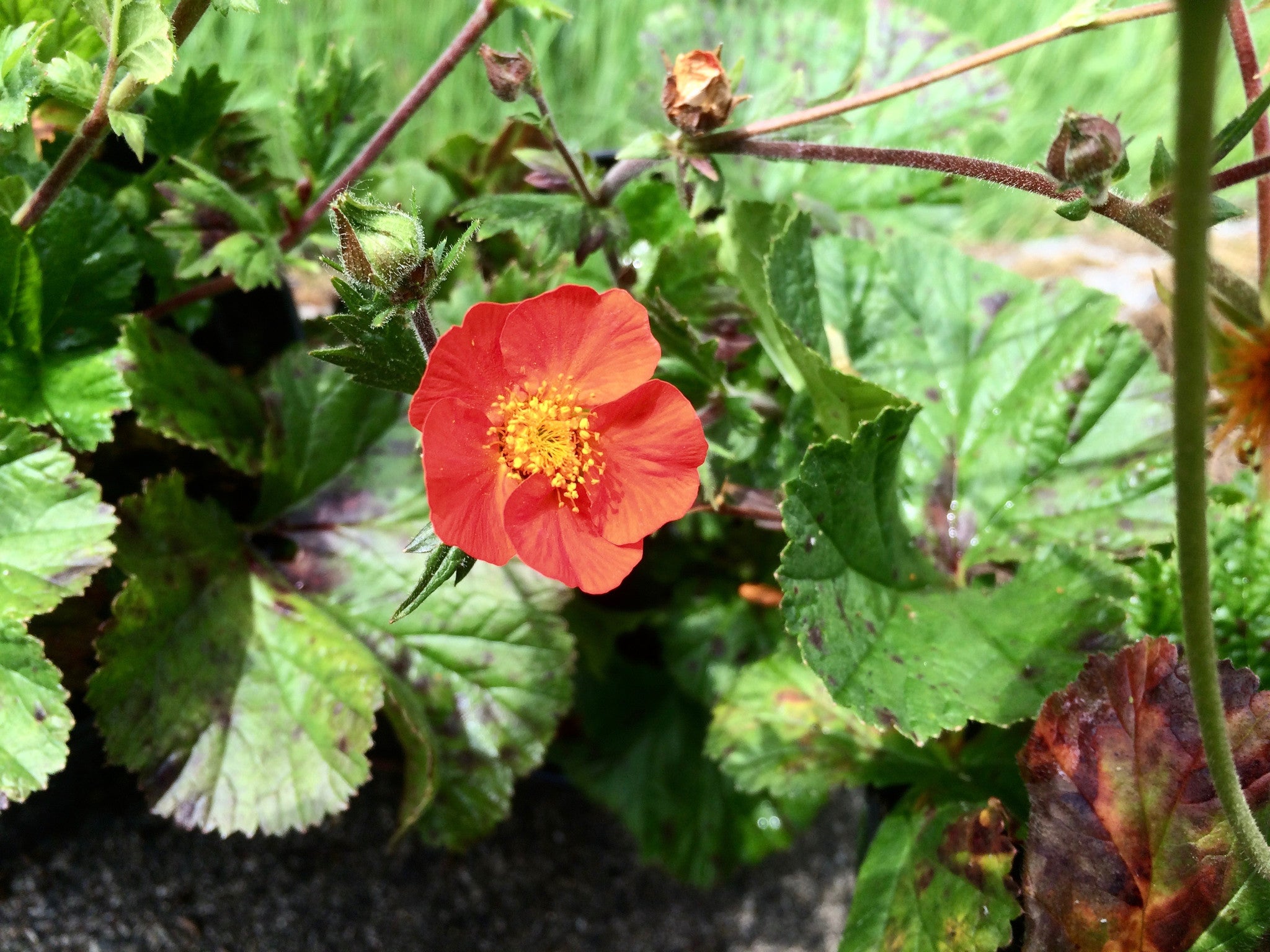Geum coccineum 'Koi'
Approx. 0.5 litre pot
About this cultivar:
Geum coccineum 'Koi' is a dwarf variety of Geum thay produces compact bright orange-red flowers from late spring and through the summer. Quite cute, one of the few Geums you could try in a pot! Maybe even in a rock-garden type situation.
- Position: Full sun, partial shade
- Soil: Almost any soil, grows well in Ballyrobert
- Flowers: May, June, July, August
- Other features: Grows well in Ballyrobert
- Hardiness: Fully hardy - grows well in Ballyrobert!
- Habit: Clump forming, bushy
- Foliage: Evergreen
- Height: 10 - 25 cm (0.3 - 0.75 ft)
- Spread: 15 - 45 cm (0.5 - 1.5 ft)
- Time to full growth: 2 to 5 years
- Plant type: Herbaceous Perennial
- Colour: Green, red
- Goes well with: Geraniums, grasses. Potentilla and Fragaria. Also try Dryopteris, Epimedium, Polygonatum, Trollius, Euphorbia, and Primulas.
About this genus:
Geum, commonly called avens, is a genus of about 50 species of rhizomatous perennial herbaceous plants in the rose family( Rosaceae). They are native to Europe, Asia, North and South America, Africa, and New Zealand - to earth basically. They are closely related to Potentilla and Fragaria. Most species produce flowers on wiry stalks, in shades of red, yellow and orange. Geum species usually have fuzzy-hairy evergreen foliage unless winter temperatures drop below −15 or -20 °C; not a regular occurrence in this part of the world.
Geum will grow anywhere that isn't full shade or in a puddle. Why are they not more popular then? I'll tell you my theory; when they are grown in pots they are very straggly and don't look great! The reality is that when planted in the ground they will be much more compact, bushy, and upright.
Their evergreen-ness makes them great for filling holes and providing year round interest; cut them back if you think they look scruffy in winter (I think they are charming in winter!). They are great with Geraniums, and I think, grasses. Often paired with their close relatives Potentilla and Fragaria. Also try Dryopteris, Epimedium, Polygonatum, Trollius, Euphorbia, and Primulas.








